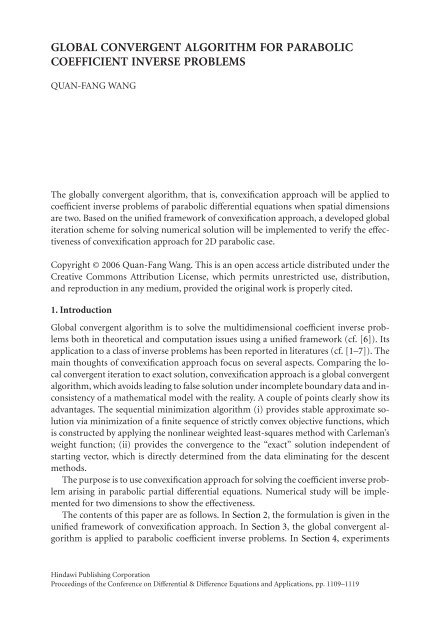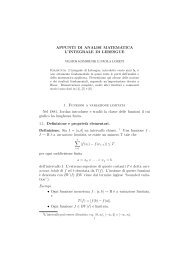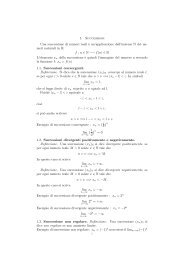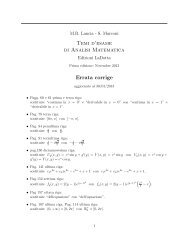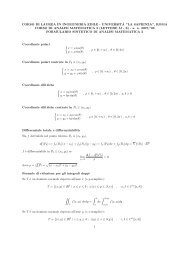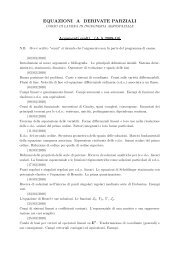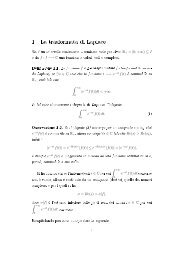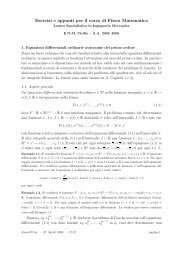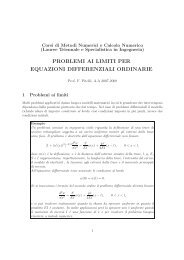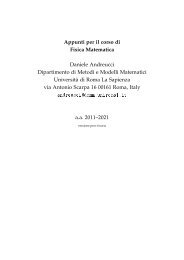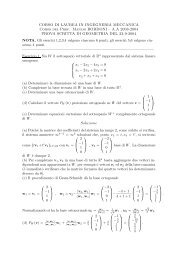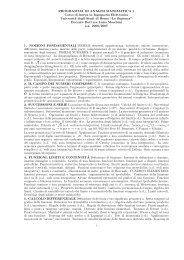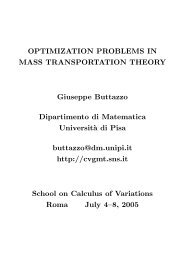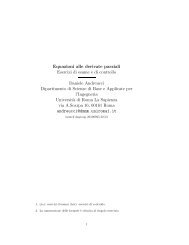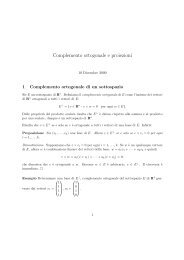DIFFERENtIAl & DIFFERENCE EqUAtIONS ANd APPlICAtIONS
DIFFERENtIAl & DIFFERENCE EqUAtIONS ANd APPlICAtIONS
DIFFERENtIAl & DIFFERENCE EqUAtIONS ANd APPlICAtIONS
Create successful ePaper yourself
Turn your PDF publications into a flip-book with our unique Google optimized e-Paper software.
GLOBAL CONVERGENT ALGORITHM FOR PARABOLIC<br />
COEFFICIENT INVERSE PROBLEMS<br />
QUAN-FANG WANG<br />
The globally convergent algorithm, that is, convexification approach will be applied to<br />
coefficient inverse problems of parabolic differential equations when spatial dimensions<br />
are two. Based on the unified framework of convexification approach, a developed global<br />
iteration scheme for solving numerical solution will be implemented to verify the effectiveness<br />
of convexification approach for 2D parabolic case.<br />
Copyright © 2006 Quan-Fang Wang. This is an open access article distributed under the<br />
Creative Commons Attribution License, which permits unrestricted use, distribution,<br />
and reproduction in any medium, provided the original work is properly cited.<br />
1. Introduction<br />
Global convergent algorithm is to solve the multidimensional coefficient inverse problems<br />
both in theoretical and computation issues using a unified framework (cf. [6]). Its<br />
application to a class of inverse problems has been reported in literatures (cf. [1–7]). The<br />
main thoughts of convexification approach focus on several aspects. Comparing the local<br />
convergent iteration to exact solution, convexification approach is a global convergent<br />
algorithm, which avoids leading to false solution under incomplete boundary data and inconsistency<br />
of a mathematical model with the reality. A couple of points clearly show its<br />
advantages. The sequential minimization algorithm (i) provides stable approximate solution<br />
via minimization of a finite sequence of strictly convex objective functions, which<br />
is constructed by applying the nonlinear weighted least-squares method with Carleman’s<br />
weight function; (ii) provides the convergence to the “exact” solution independent of<br />
starting vector, which is directly determined from the data eliminating for the descent<br />
methods.<br />
The purpose is to use convexification approach for solving the coefficient inverse problem<br />
arising in parabolic partial differential equations. Numerical study will be implemented<br />
for two dimensions to show the effectiveness.<br />
The contents of this paper are as follows. In Section 2, the formulation is given in the<br />
unified framework of convexification approach. In Section 3, the global convergent algorithm<br />
is applied to parabolic coefficient inverse problems. In Section 4, experiments<br />
Hindawi Publishing Corporation<br />
Proceedings of the Conference on Differential & Difference Equations and Applications, pp. 1109–1119


